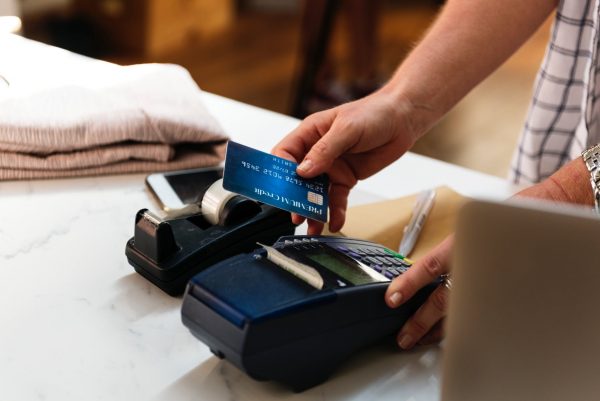
Last summer, cards overtook cash in the UK as the most popular form of payment for the very first time, and that was quickly followed by contactless payments overtaking traditional chip and pin. That leaves cash in third place in the payment race, with the gap surely widening.
So, is cash a dying method of payment? Maybe not just yet. To break it down, here’s a point-by-point guide of credit card versus cash.
The case for credit cards
- Convenience: Using a card means you can make purchases as and when without the hassle of carrying cash. Contactless payments have made transactions easier and swifter than ever, plus credit cards allow you to make purchases you might otherwise have to wait for., as long as you use it responsibly.
- Spending power: Paying with cash means you are limited to what you can buy. If you see something you like but don’t have enough money on you, you’re done for. A credit card gives you the option to spend what you want when you want to.
- Security: Being able to pay for big items without the need for carrying large amounts of cash has obvious benefits. If your money gets stolen, it’s gone. If your card is stolen, there are sophisticated anti-fraud systems in place to prevent access to your money. You’ll be issued with a new card and it’s like nothing ever happened.
- Online access: E-commerce is a huge part of modern shopping and set to take over retail as we know it. If you don’t have a card, you don’t have access, and that’s simply not practical in today’s world.
- Rewards: Many credit cards come with rewards packages to incentivise purchases, meaning you can earn as you spend with cashback and gift card bonuses.
The case for cash
- Control your spending: Yes, cash is less convenient and limits your spending ability; but that can be a very good thing. There are various studies to show that access to a credit card significantly increases spontaneous purchasing and overall spending, meaning you can save a lot of money by relying more on cash. By using cash, you only spend what you have and avoid debt problems that you can easily get into with reckless use of a card.
- Support the little guys: There’s still a few million SMEs in the UK that don’t accept card or contactless payments. In this case, using cash is mutually beneficial: the local business still gets your support, whilst you get what you wanted to buy. We’ve all been at a shop to find out it’s a £10 minimum spend on your card. Your first thought? ‘If only I had cash…’ before getting your card out and buying something unnecessary to get you over the limit.
- Protect your credit: If you’re looking to stay on top of your finances, you’ll know credit cards are a dangerous game. For all the benefits of advanced credit, the money does need to be paid back, in full and on time. Relying solely on credit cards means you can lose track of your spending, forget a due payment or burn through more money than you have. All of these mean interest, debt and damage to your credit score, and it’s not an easy situation to get out of.
The best of both?
Even though you’ll rarely find cash in most people’s wallets, it’s fair to say a mix between the two still offers an optimal solution that most people take advantage of.
When used correctly, credit cards offer the best of modern convenience: quick payments, buy what you want when you want, secure buying and full access to a technology-driven world of commerce.
Credit cards can also be a key factor in building credit for life’s bigger investments, like a mortgage or a car. Managing your finances properly will ensure you have a healthy relationship with accounts. A card used carelessly, however, can cause problems down the line.
Cash is old-fashioned, slow and simple, but those three factors are to its benefit when tempering today’s buy now, pay later culture. By finding a balance between the two, you can enjoy all the benefits modern technology has to offer, whilst keeping yourself in check financially.
So, is a credit card better than cash? It really depends on whose hands it’s in.